5 More Tips for Storing Your Items Safely During the Winter
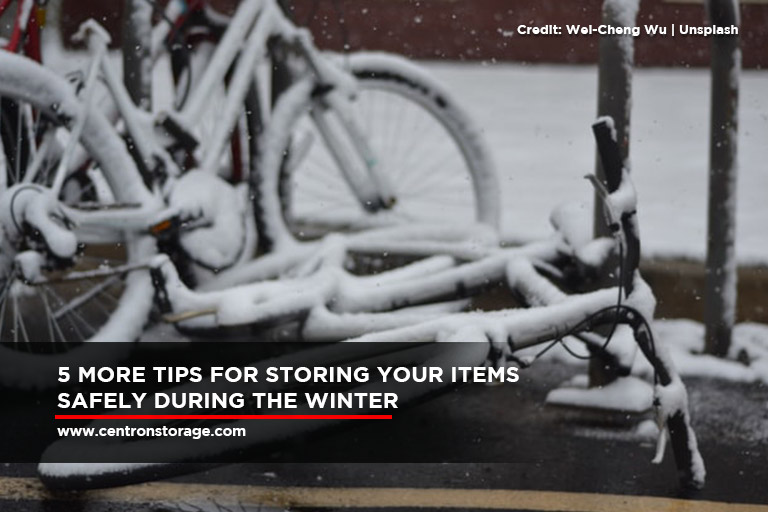
A great number of the items in most households are seasonal. Some of those that you’ll need in the summer will be useless in the winter, and vice versa. As a result, it’s critical to safely store these items to keep them in good condition.
Storing items during winter is easier said than done, however. The elements, the temperature, as well as a lack of use, can wreak havoc on your belongings. When it comes to protecting your personal belongings throughout the winter months, there are a few things you need to consider.
Here are some storage tips for winter:
How Do You Store Things for the Winter
- Decide What to Keep
The first step before putting your belongings in storage is to decide what you want to put away for the winter. Some of your possessions may not be worth storing and would simply take up room that could be better used for more necessary items.
Make a list of the objects you want to store, select what should be kept and what should be donated or thrown out first. Throw away anything that is broken, ripped, cracked, or beyond fixing. Decide whether you want to spend the time cleaning, painting, or reupholstering it if it’s just dirty, faded, or rusty. If the answer is no, donate it; if the answer is yes, put it on your list of things to keep.
- Clean Your Belongings
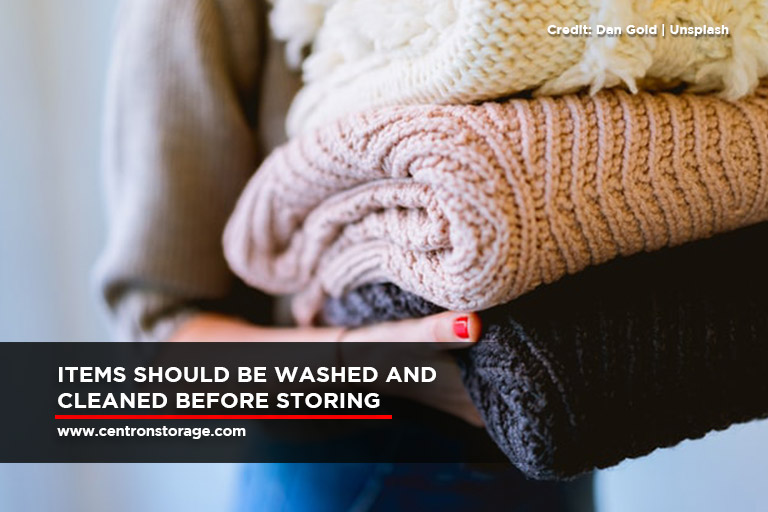
The simplest approach to keeping objects in winter storage from deteriorating is to always take extra precautions by carefully cleaning and storing each item. Allowing dust and dirt to sit with your belongings for months can cause a lot of damage.
Cleaning your belongings before keeping them protects not only the item but also the storage container. Make sure to dry your valuables after you’ve cleaned them. Water or moisture of any kind can cause issues, especially in the winter when liquids freeze and expand. Don’t forget to make all necessary repairs before storing your belongings, as well.
- Cover Your Items
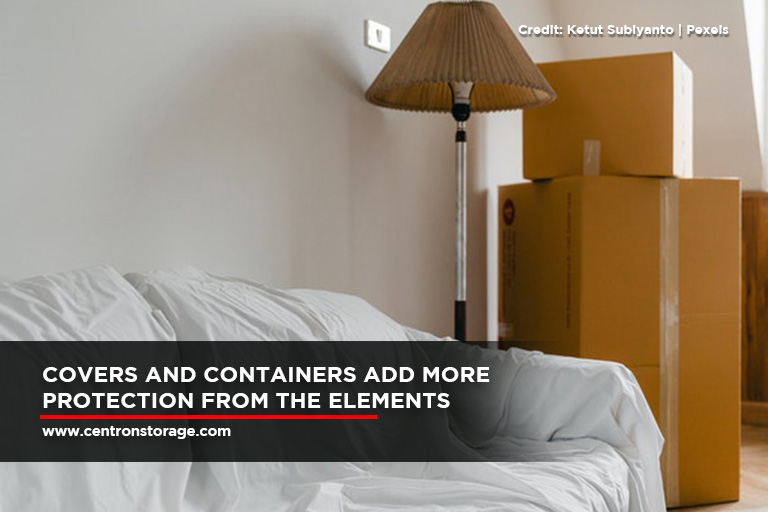
Covering your valuables is an excellent way to keep them safe. Covering your belongings offers an added layer of cushioning and keeps bugs, dust, and debris out. However, you cannot simply cover your things with any material. Plastic and vinyl are not recommended because they can collect moisture or water and break or split when exposed to the cold in the winter. Wool or fabric coverings are the best materials to safeguard your items.
Moving blankets are also a terrific way to keep your possessions secure for an extended period. Packing materials are also beneficial for maintaining heat and safeguarding any objects in boxes. You can also place your items inside plastic containers instead of cardboard boxes. Plastic bins are durable and offer more protection from moisture and anything else that could try to sneak inside.
- Keep Electronics Elevated
When electronics are exposed to extremely cold temperatures, they are easily ruined. So, if at all possible, take precautions to keep devices off the ground — put them on top of furniture, in boxes, or on shelves. The ground loses heat even in climate-controlled storage containers and is the coldest portion of the unit. Electronics left in this condition over the winter might be irreparably destroyed. - Choose Climate Controlled Storage
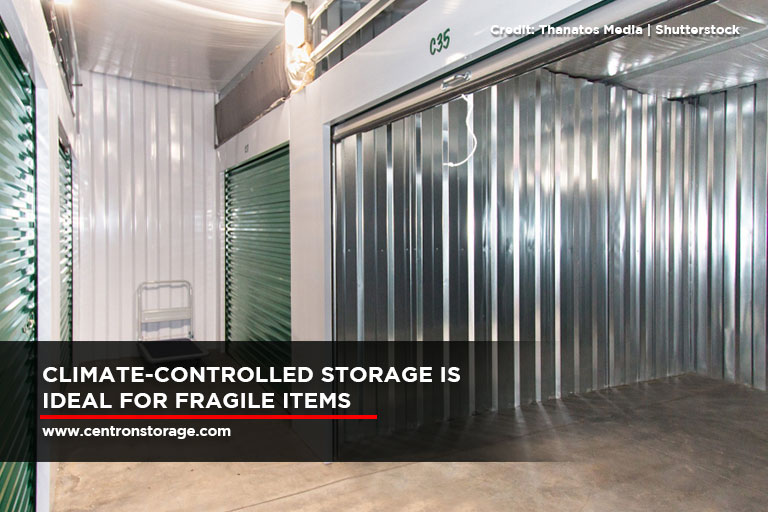
Climate-controlled storage containers are ideal for storing your belongings, especially those that are valuable or fragile. The cold may cause a lot of damage to a lot of things. Climate-controlled storage facilities protect your possessions from temperature-related harm, which is especially handy during the winter.
These storage units will keep moisture from accumulating and seeping into your electronic, motor-driven, rust-prone devices. Climate-controlled storage lockers are a sure-fire way to preserve all of your belongings in good shape.
General Tips to Storing Items During Winter
Storage during winter is tricky. There are several places where the temperature drops significantly below zero. So, regardless of the type of winter you have in your area, you’ll want to make sure your things are well-protected.
- Clothing
Before storing any fabric or piece of clothing, it must be thoroughly washed and dried. This is necessary to avoid mould. Also, clothes, especially those that aren’t totally clean, can attract pests.
When arranging your storage unit, it makes sense to stack clothes and fabrics as high as possible in your storage locker. The reason for this is that humidity is denser than air and tends to sink. This means that the higher you store your clothes, the drier the air is and the safer your garments are.
- Activity Equipment
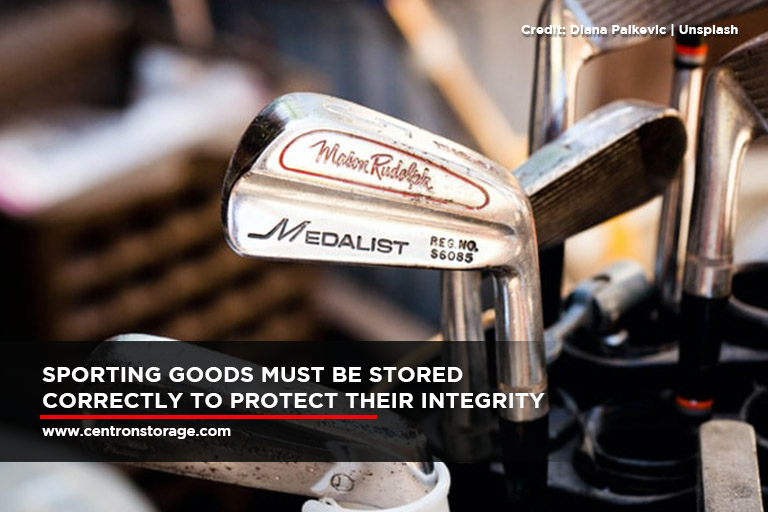
When it starts snowing, some equipment has to go. Winter storage for a camper is particularly important. Sporting goods and activity equipment don’t come cheap, and everyone understands that they are a significant investment. As a result, it would be a waste to harm perfectly good equipment by not properly storing them.
Like all other things, you have to clean them first correctly. It is not recommended for you to place them directly on the floor. If possible, hang them on a pegboard or place them on a pallet.
- Bicycle
To store a bike for the winter, there are a few measures to follow. Before storing the bike, make sure the tires are fully inflated, as the cold weather might cause them to lose air. If you’re storing the bike on the ground, flip it upside down or hang it on a bike rack to relieve pressure on the tires. Lubricate the brakes, bike chain, and cables to prevent rusting or moisture from entering into the bike and freezing parts. - Car
It is critical to take all necessary precautions when storing any sort of vehicle for the winter. Winter weather may cause problems with your car’s engine, battery, and brakes.
Before storing a car for winter, remove the batteries and empty the gas tank, as well as any other liquids in the vehicle. Check your tire pressure and make sure your car is covered with a tarp or other covering because cold weather might cause your tires to deflate.
- Equipment With An Engine
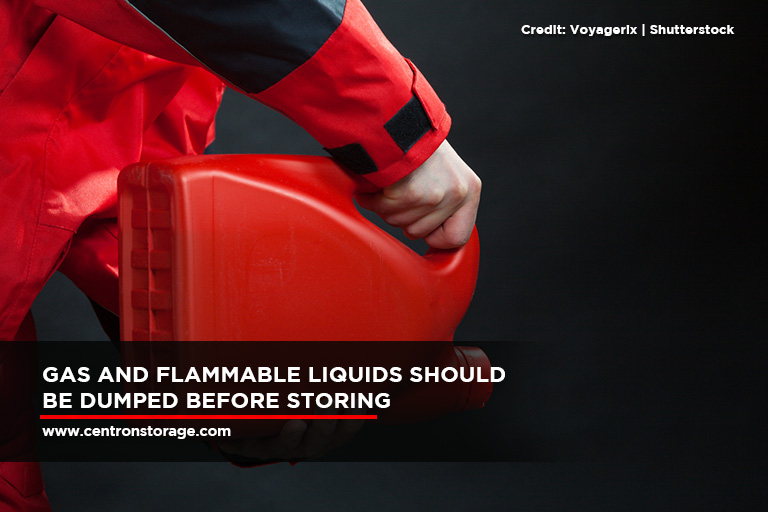
If you’re planning to store any type of engine-powered equipment (such as a lawnmower), make sure to empty the gas first. Remember that flammable liquids are not allowed in storage units.
Any old fuel that has remained in the tank for a long period can cause engine harm, so dump the tank to avoid having to make any repairs by next spring.
Also, make sure to clean the equipment thoroughly before storing it, and protect it with some form of cover.
Securing, preserving, and storing your assets effectively throughout the winter takes a lot of thought and effort. But, if you follow these tips, you will be relieved to find your belongings still in excellent shape next season.
If you are looking for a storage facility this winter, come to Centron Self-Storage in North York, Ontario. Reserve your unit now and keep your items safe by calling us at (647) 557-7378!
